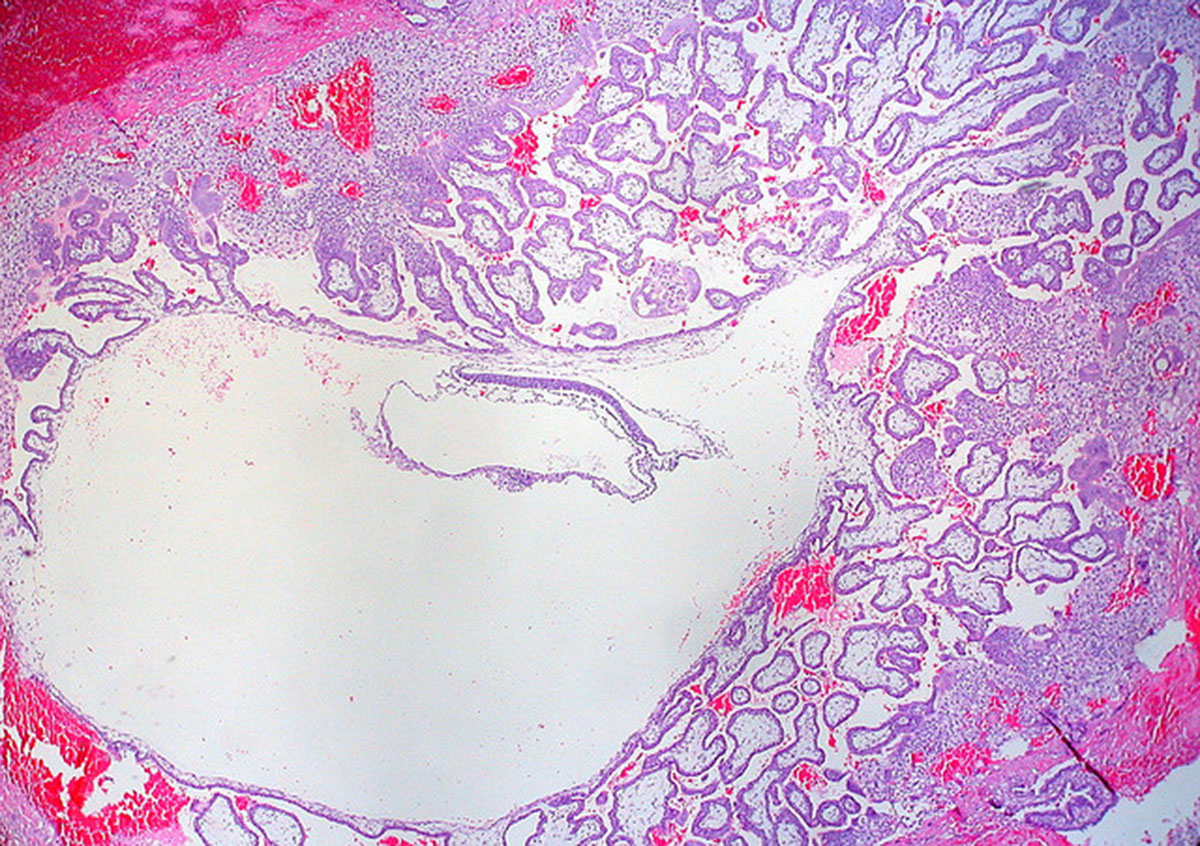Vaginal bleeding during the first trimester of pregnancy does not always indicate you will have a miscarriage. What are the other reasons you may bleed during pregnancy?
Subchorionic Hemorrhage
A subchorionic hemorrhage is a condition in which blood accumulates between the uterine wall and your baby's gestational sac. This is not a miscarriage, and is quite a common occurrence, although you might experience it as an abnormal vaginal discharge. While the subchorionic hemorrhage may dissolve and be reaborbed by your body, you may also pass it in the form of dark blood. Clots may be seen on an ultrasound as well.
A Sexually Transmitted Disease
Sexually transmitted diseases such as gonorrhea and chlamydia can also lead to vaginal bleeding during pregnancy. If you have an STD during pregnancy, it does not necessarily mean you will have a miscarriage, though chances of miscarriage can be increased. Your doctor does, absolutely, need to know about any sexually transmitted diseases you have during pregnancy, however, so if you have not been tested yet, vaginal bleeding is a sign you will need to be tested for STDs as well.
Signs That You Are Having A Miscarriage
If you are having a miscarriage, your bleeding will be heavy rather than light, reminding you of a menstrual period but accompanied by the passing of tissue and clots as well. As with a menstrual period, you will experience cramping as well. Unlike what you'd experience with a menstrual period, this cramping will follow a noticeable pattern due to cervical dilation, much like labor contractions but usually far less physically painful during the first trimester.
When Should You See A Doctor?
I'll fully admit to not having seen a doctor when I experienced a 10-week miscarriage. I was visiting my mother, who had just had a cancer operation, in hospital when I noticed a feeling of blood trickling down my legs. It was a rainy day, and I was still wearing a long rain coat when it happened. Nobody in my family knew I was pregnant yet, so I told my sister I had just started my period and I had to go home to change. When I got home to assess the blood loss, I was pretty sure I was having a miscarriage. Due to worries about my mother, I did not see my family doctor until three days later. It turned out that I had indeed experienced a miscarriage, and also that no further action was necessary.
However, if you know you are pregnant and you start bleeding, it is always a good idea to see a doctor, since there is always the possibility that your bleeding is caused not by a regular miscarriage but by an ectopic pregnancy, something that can quickly become life-threatening. If you experience the following symptoms, skip making an appointment with your family doctor or OBGYN in favor of heading to the emergency room or calling an ambulance:
-
Severe lower abdominal pain or cramping, especially sharp, stabbing pain.
- Extreme amounts of bleeding — much more than you would typically experience during a period, and also much faster.
- Feeling dizzy and lightheaded, feeling like you are going to pass out.
- Extreme nausea and vomiting.
- A high fever and/or chills.
- Loss of tissue or blood that smells foul.
These symptoms can indicate the presence of an ectopic pregnancy or an infection. They need to be taken seriously.
In general, it is always good to see your doctor when you experience first trimester bleeding, even if you are quite sure you are experiencing a miscarriage. Your doctor can confirm whether you are indeed having a miscarriage after performing an ultrasound scan (transvaginally in the very early stages of pregnancy), and later on whether any tissues that would require a dilation and curretage are left in the uterus.


